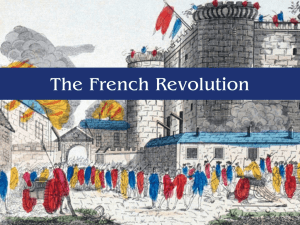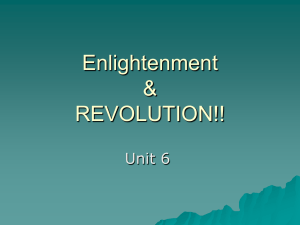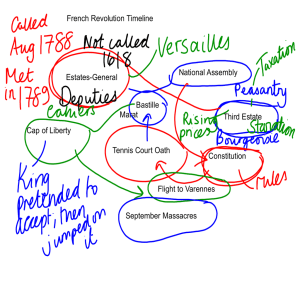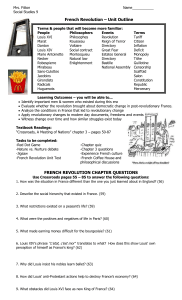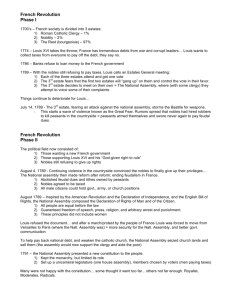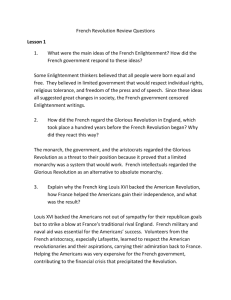“We Have the Baker, the Baker`s Wife, and the Baker`s Son. We
advertisement
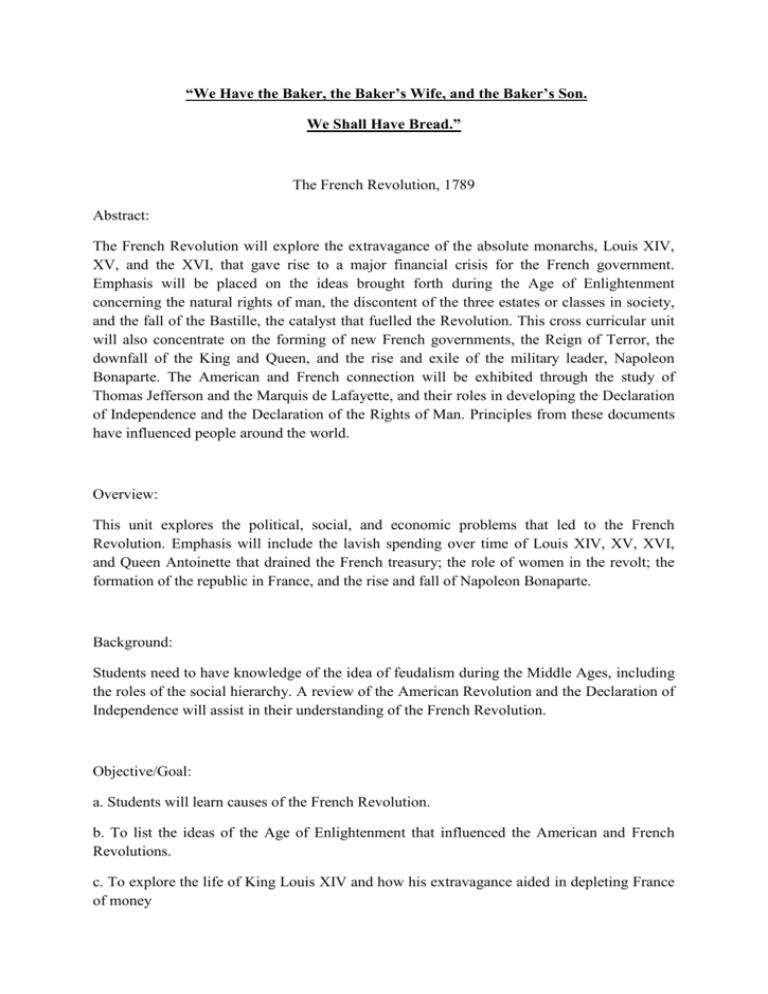
“We Have the Baker, the Baker’s Wife, and the Baker’s Son. We Shall Have Bread.” The French Revolution, 1789 Abstract: The French Revolution will explore the extravagance of the absolute monarchs, Louis XIV, XV, and the XVI, that gave rise to a major financial crisis for the French government. Emphasis will be placed on the ideas brought forth during the Age of Enlightenment concerning the natural rights of man, the discontent of the three estates or classes in society, and the fall of the Bastille, the catalyst that fuelled the Revolution. This cross curricular unit will also concentrate on the forming of new French governments, the Reign of Terror, the downfall of the King and Queen, and the rise and exile of the military leader, Napoleon Bonaparte. The American and French connection will be exhibited through the study of Thomas Jefferson and the Marquis de Lafayette, and their roles in developing the Declaration of Independence and the Declaration of the Rights of Man. Principles from these documents have influenced people around the world. Overview: This unit explores the political, social, and economic problems that led to the French Revolution. Emphasis will include the lavish spending over time of Louis XIV, XV, XVI, and Queen Antoinette that drained the French treasury; the role of women in the revolt; the formation of the republic in France, and the rise and fall of Napoleon Bonaparte. Background: Students need to have knowledge of the idea of feudalism during the Middle Ages, including the roles of the social hierarchy. A review of the American Revolution and the Declaration of Independence will assist in their understanding of the French Revolution. Objective/Goal: a. Students will learn causes of the French Revolution. b. To list the ideas of the Age of Enlightenment that influenced the American and French Revolutions. c. To explore the life of King Louis XIV and how his extravagance aided in depleting France of money d. To explore the life of King Louis XV and how his luxurious spending helped to empty the French treasury. e. To compare the lives of Louis XIV and the Louis XV and draw conclusions. f. To study the life of Marie Antoinette and how she aided in creating her own downfall. Aids Used: 1. Chalk, Duster, Blackboard and other common aids available in the classroom. 2. Map MLL Questions: (1) What was the difference between the upper clergy and the lower clergy? (2) Why was there resentment towards the clergy from the peasants? (3) What was the conflict among the nobles? (4.) Why did nobles feel disdain towards the church? (5.) What was the major conflict between the third and the other two estates? (7.) What were the problems faced by the peasants? (8.) What did the estates have in common? Value Based Questions: 1. What were the effects of French Revolution on economy of Europe? 2. How did the philosophers influence French Revolution as well as Socialism in Europe? 3. How did Indian National Movement gain momentum from the ideals of the French Rvolution?

